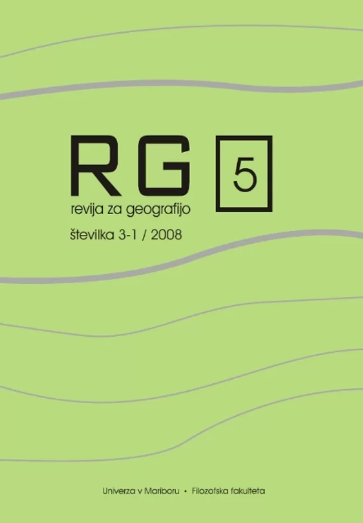Knowledge base of the region - role of the universities in regional innovation (the case of south Transdanubia)
DOI:
https://doi.org/10.18690/rg.3.1.3131Keywords:
regionalne inovacije, znanstvena baza, raziskava ERAWATCH, povezave med univerzo in podjetjem, znanje in gospodarska specializacijaAbstract
The economic attraction and competitiveness of the regions depends on the spatially balanced network-based co-operation of different research bases and firms involved in innovation development. The utilisation of the regional knowledge base, innovation potential and co-operation between businesses and universities & research institutions continues to play an increasing role in regard to business success and the competitive economic performance of the regions. Innovation is considered as an interactive and system-like process depending on traditions with definite spatial forms and it is manifested in the form of “networks” among the companies and universities, and among the different transfer organisations, which can stimulate university-industry linkages. The paper presents the findings of the “ERAWATCH regional benchmarking surveys – in which the South Transdanubian region participated in – on innovation potential and investment into research” surveys concentrating on the role of innovation networks, within them highlighting the special role of regional universities in the collaborative research networks. The introduction is followed by a demonstration highlighting the role of universities in national and regional knowledge transfer emphasizing the fact that the spatial (regional) structure of innovation is very much determined by the transformation of potential universities and their widening innovative functions during the economic transition in Hungary. The next section provides an overview of findings of the ERAWATCH survey (2006) on the role of universities in regional network building and discusses those factors that are necessary for the establishment of a research university model. The last section assesses the efficiency and coherence of the Regional Innovation System with regard to the needs and capacities of the regional economies and the extent of matching or mismatching between the knowledge and economic specialization.
Downloads
References
Acs, Z. J., & Varga, A. 2002: Geography, endogenous growth, and innovation. International Regional Science Review, 25, pp. 132-148.
Bennett, R. J., & Krebs, G. 1991: Local Economic Development: Public–Private Partnership Initiatives in Britain and Germany. London, Belhaven Press.
Cooke, P. 1995: Planet Europa: Network approaches to regional innovation and technology management. Technology Management, 2, pp. 18-30.
Florax, R. 1992: The university: A regional booster? Economic impacts of academic knowledge infrastructure. Avebury, Aldershot.
Gál, Z. 2002: Preconditions for regional innovation network building in the Hungarian Region of South Transdanubia. In: Varga, A. & Szerb, L. (eds.), Innovation, Entrepreneurship, Regions and Economic Development: International Experiences and Hungarian Challenges. University of Pécs, Pécs, pp. 265-295.
Gál, Z. 2005: The new tool for economic growth: Role of innovation in the transformation and regional development of Hungary. Geographica Polonica, vol 78/ No. 2. 2005 Autumn, pp. 31-52.
Gál, Z., & Csonka, L. 2006: Specific analysis on the regional dimension of investment in research – case study report and database on the South Transdanubian region (Hungary). Brussels: ERAWATCH, 2006. 70 p.
Horváth, Gy. 2003: University and regional transformation. In: Nagy, F. & Vonyó, J. (eds.), City and its University. Pécs, University of Pécs.
Koschatzky, K. 2002: Networking between industry and public research – Which role does the region play? Empirical evidence from Slovenia. In: Varga, A. & Szerb, L. (eds.), Innovation, Entrepreneurship, Regions and Economic Development: International Experiences and Hungarian Challenges. University of Pécs, Pécs.
Koschatzky, K., & Sternberg, R. 2000: R&D co-operation in innovation systems–Some lessons from the European Regional Innovation Survey (ERIS). European Planning Studies, Vol 8, No. 4, pp. 486-501.
Landabaso, M. 1997: The promotion of innovation in regional policy: Proposals for a regional innovation strategy. Entrepreneurship and Regional Development, 9.
Lengyel, I. 2000: On regional competitiveness. Közgazdasági Szemle, XLVII.évf. December, pp. 962-987.
Varga, A. 2000: Local academic knowledge spillovers and the concentration of economic activity. Journal of Regional Science, 40, pp. 289-309.
Varga, A. 2004: The regional economic impacts of university researches in international literature. Közgazdasági Szemle, LI. Évf. March, pp. 259-275.
Downloads
Published
Issue
Section
License
Copyright (c) 2008 Zoltán Gál

This work is licensed under a Creative Commons Attribution 4.0 International License.
